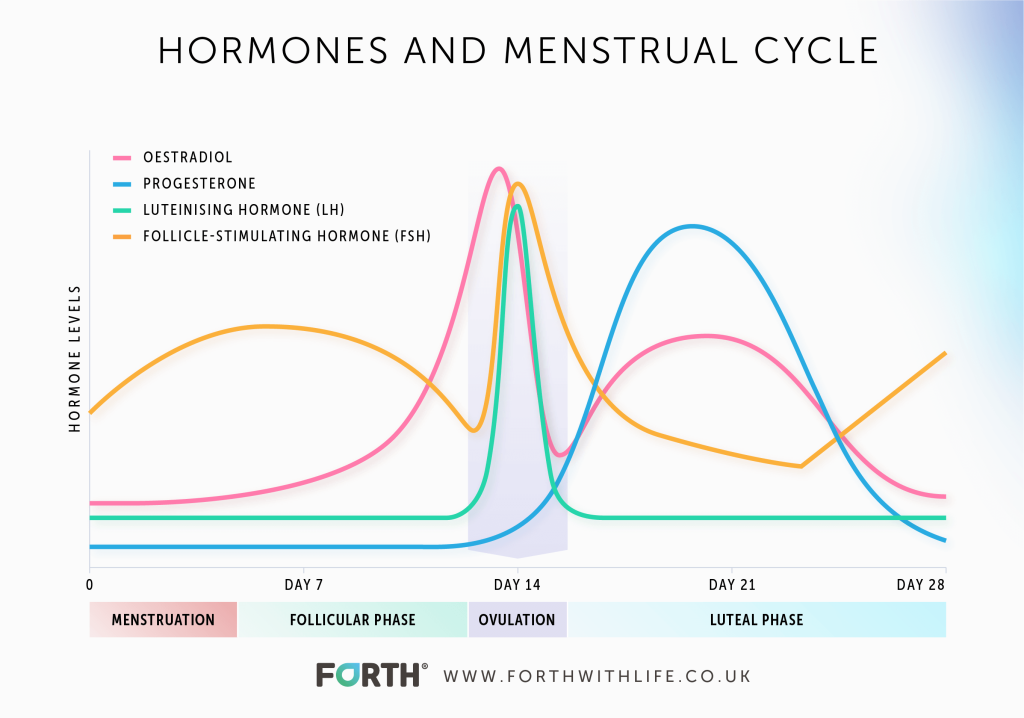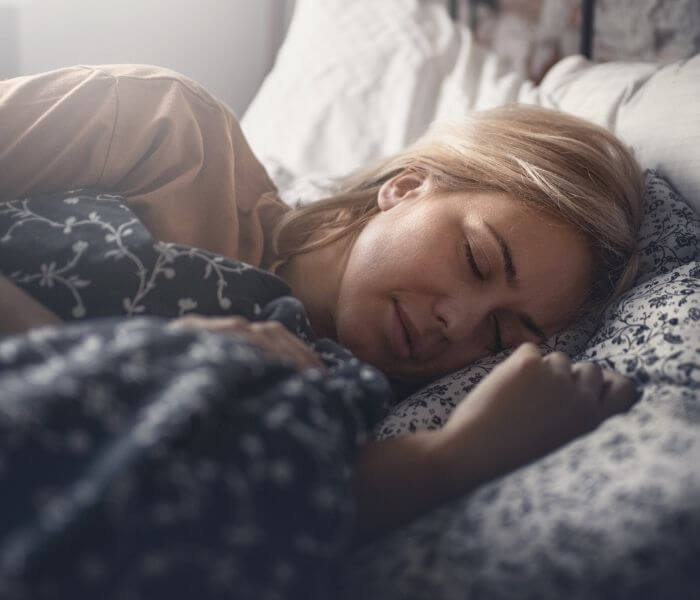6 mins read
8 Tips To Improve Your Energy Levels

- 8 Ways To Improve Your Energy Levels
- 2. Better Diet
- 3. Take A Vitamin D Supplement
- 4. Staying Hydrated
- 5. Get Enough Exercise
- 6. Don’t Over Exercise!
- 7. Tune Into Your Menstrual Cycle
- 8. Manage
- 9. Rule Out Thyroid Issues
There are many causes of low energy levels, and having a busy lifestyle and hectic job can easily drain our energy levels. But other factors also contribute to fatigue and low energy.
Following on from our blog ‘What Makes Us Tired’, we take a look at the ways you can naturally improve your energy levels and stop feeling so tired all the time.
8 Ways To Improve Your Energy Levels
1. Better Sleep Hygiene
Sleep Hygiene is the term used to describe science-backed tactics which you can carry out during the day and before bed to improve your sleep.
Sleep hygiene tips for a more restful night sleep include:
- Regular sleep times
- Sleeping in a cool, dark, and quiet bedroom
- Reducing screen time before bed
- Developing a wind-down routine
But sleep hygiene doesn’t work for everyone, instead, a method called ACT may be more useful. ACT teaches people to accept the fact they cannot sleep, teaching them to learn mental flexibility and openness to uncomfortable situations, such as not being able to sleep. It also promotes the benefits of staying in bed rather than getting up if you can’t sleep. Resting is not as good as sleeping but your body is still getting some chance to recharge.
You can learn more about sleep hygiene in our blog ‘What Is Good Sleep Hygiene’.

2. Better Diet
The next step to improving your energy levels is to look at what you are eating and drinking. Having a healthy, balanced diet is the best way to get all those energy-boosting vitamins such as B12, iron and magnesium. Keeping your blood sugar levels consistent by lowering your intake of sugary foods and drinks will preventing blood sugar level drops which zap you of energy. Plus, cut back on caffeine and alcohol too.
Check if you are deficient in key vitamins.
3. Take A Vitamin D Supplement
The NHS advises that all UK adults take a vitamin D supplement, especially through the winter months from September to April. We gain most of our vitamin D through the synthesis of sunlight on the skin, and this is in short supply in the UK particularly during winter. Aim to take 400UI or 10 mcg of vitamin D a day.
Test your Vitamin D levels to know if you are deficient.
4. Staying Hydrated
One of the easiest things we can do to improve our energy levels is to stay hydrated. 60% of the body is made up of water and it only takes a 2% loss in bodily fluids to cause dehydration. This can affect all areas of the body causing physical and cognitive impairment. You should aim to drink 6 to 8 cups or glasses of fluid a day, including water, sugar-free drinks, low-fat milk, tea, and coffee – although don’t make all 8 cups of tea or coffee! If you take sugar with your tea/coffee, try and cut back too.

5. Get Enough Exercise
This may seem counter-intuitive when you are feeling low on energy, but exercise actually boosts your body’s energy reserves.
When we exercise cellular level changes happen in our body, it encourages our bodies to produce more mitochondria inside our muscle cells. Mitochondria create fuel out of glucose made from the food we eat and oxygen from the air we breathe. So, increasing mitochondria cells increases your body’s energy supply.
In addition, exercise will help improve your cardiovascular health meaning your heart doesn’t have to work as hard to pump blood around your body. It will also improve your quality of sleep by helping you to fall asleep quicker and stay asleep, allowing you to get more restful sleep during the night.
6. Don’t Over Exercise!
Rest and recovery are key parts of any exercise regime. Too much exercise and not enough rest will have a detrimental impact on your health, not just your sports performance. The consequences of this mean that many of the body’s systems are affected, such as metabolism, bone health, menstruation, immunity, mood, and cardiovascular health. Too much exercise and not enough rest can also impact your sleep quality as the stress on your body increases your cortisol levels. Consistently high cortisol impacts your sleep pattern.
In men, over-training and under-fuelling can result in low testosterone levels, so it’s important to ensure you are eating enough to fuel your body for the amount of training you are doing. If you think this may be relevant to you, then it’s best to get your testosterone levels checked alongside other key hormones that influence testosterone production.
Learn more about exercise and recovery.
7. Tune Into Your Menstrual Cycle
A woman’s hormones rise and fall naturally across her menstrual cycle. During the luteal phase, progesterone levels peak and because progesterone can make glucose less available to your muscles it means you may find you tire more easily during this phase of your cycle.
Getting a better understanding of your hormone fluctuations across your entire menstrual cycle and linking these with how you feel will help you put strategies in place to improve your energy.
Learn more about your hormones during your menstrual cycle.

8. Manage Perimenopause Symptoms
If you are going through perimenopause, then HRT is the best way to improve your symptoms helping you regain your energy levels. You can learn more about HRT in our blog ‘What Are the Benefits and Risks of HRT’.
Learn more about hormone changes during the menopause.
9. Rule Out Thyroid Issues
If, alongside low energy levels, you are also suffering from:
- Feeling nervous, anxious, or irritable
- Mood changes
- Difficulty sleeping
- Fatigue
- Muscle weakness
- Itchiness
- Hyperactivity
- Sensitivity to heat
You may have an overactive thyroid. However, if your symptoms are:
- Feeling tired
- Weight gain
- Constipation
- Depression
- Dry skin
- Low sex drive
- Sensitivity to cold
- Slow movements and thoughts
- Brittle hair and nails
- Irregular or heavy periods
Then you may have an underactive thyroid.
If you are concerned that you may have a thyroid condition, then it’s best to get tested to rule this out as the cause of low energy levels.
Summary
Having enough energy for your daily activities starts with a good nights rest, so adopting good sleep hygiene techniques is a great place to start. Next, ensure your diet is giving you the right nutrients, particularly vitamin B12, iron and magnesium all key to energy production. Make sure you are staying hydrated throughout the day and adjust the amount you are drinking based on the weather conditions and other factors such as how much you are working out and losing fluid through sweat. Rule out any conditions that may be causing low energy and fatigue such as thyroid disorders. Finally, check for any hormone imbalance that could be causing you to feel overly tired and low on energy.
This information has been medically written by Dr Thom Phillips
Thom works in NHS general practice and has a decade of experience working in both male and female elite sport. He has a background in exercise physiology and has published research into fatigue biomarkers.

Dr Thom Phillips
Head of Clinical Services
Related articles
Like this article? Here are some more based on similar topics.




